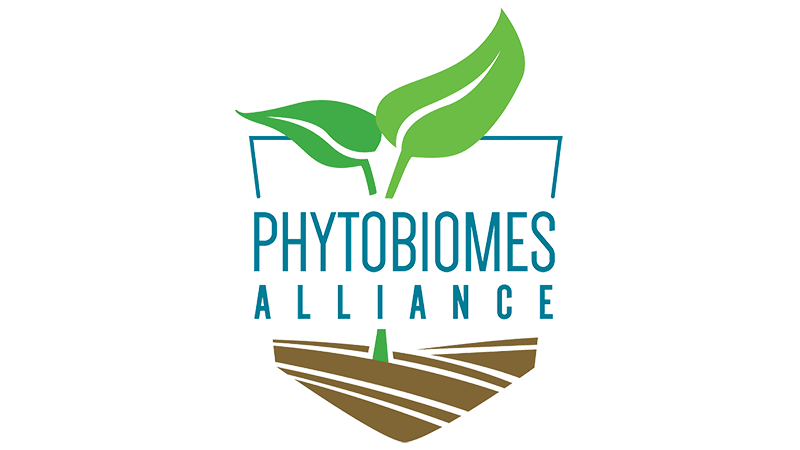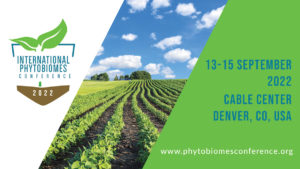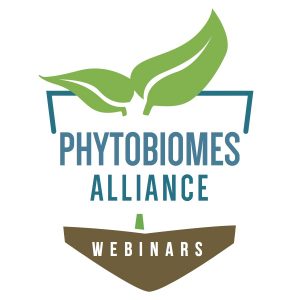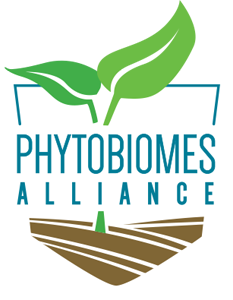
Phytobiomes Alliance Newsletter – July 2022
Projects and Activities
Novel Microbiome Technologies to Increase Profitability for Australian Horticulture (Funded by Hort Innovation, Australia)
The project started in March 2022 under the leadership of Kirsty Bayliss (Murdoch University, Australia), in collaboration with Hort Innovation Australia, the Cooperative Research Centre for Future Food Systems, Thinkbio, Melville Park, and the Phytobiome Alliance.
The objective is to develop and deploy new microbiome-based products that increase the yield and therefore profitability of annual and perennial Australian horticultural crops, including those under protected cropping. The products will be developed by analyzing the microbiomes associated with the life cycle of the crop, from seed to harvest. In particular, it will be assessed how these microbiomes change when exposed to biotic or abiotic stresses. The aim is to select consortia of microorganisms that are associated with crops that exhibit higher tolerance to these stresses, and develop these into new products that increase crop yield. Project page
Genome Sequence-Based Classification System for Microbes (funded by the USDA Animal Plant Health Inspection Service – APHIS).
The Alliance-coordinated project began in August 2019 and focused on the select agent Ralstonia solanacearum (Rs). In this project, a classification system based on whole genome sequences was used to precisely identify microbes and conclusively distinguish between Rs strains of high impact and biosecurity concern and those that are not. The project was completed in August 2021. Manuscripts are currently in preparation. Project page
A new project proposal was recently approved for funding by USDA-APHIS to complement and extend results from the phenotypic and genomic research obtained in the recently completed project. The purpose of this new project is to precisely circumscribe the authentically threatening Rs strains that are highly aggressive on potato at cool temperatures using a combination of phenotypic assays and bioinformatics to develop diagnostic markers that reliably and specifically identify these threatening strains. The new project started in July 2022.
United States Culture Collection Network – USCCN (funded by the U.S. National Science Foundation – NSF)
The five-year Alliance-coordinated project started in April 2022 and brings together scientists working with laboratory-based collections of microbes. The mission of the network is to facilitate the safe and responsible utilization of microbial resources for research, education, industry, medicine, and agriculture for the betterment of humankind.
Given the increasing importance of microbes and microbially based products in agriculture, the USCCN will help to increase access to and preservation of essential microbes. Project Page
Microbiomes Working Group
The Alliance announced the creation of a Microbiomes Working group, chaired by Ann Lichens-Park. The aim of the Microbiomes Working Group is to identify knowledge and resource gaps that need to be addressed to advance our understanding of the role that microbes play within the broad phytobiome systems and how we can use this to improve agricultural sustainability.
The group will organize a listening session at the upcoming International Phytobiomes Conference to hear attendees’ suggestions about key knowledge gaps in understanding plant and soil microbiomes. Input obtained from attendees will be incorporated into a white paper for broader distribution.
See related news: The Alliance adds a Microbiomes Working Group, led by Ann Lichens-Park
New Coordinating Committee Members
We are pleased to welcome:
- Fernanda Amaral, representing Joyn Bio
- Charles Cowden, representing Valent BioSciences
- Prasanna Kankanala, representing Trace Genomics
Alliance News
- For a round-up of the Alliance activities last year, read the Phytobiomes Alliance 2021 Annual Report
- The Alliance added an Affiliate status open to consultants (sole practitioners or working in small consulting firms) who wish to be involved in Alliance activities. Affiliates participate to the Alliance Working Groups and may chair one working group.
- 14 June 2022: The Alliance adds a Microbiomes Working Group, led by Ann Lichens-Park
- 28 June 2022: the Alliance welcomes a new sponsor, read the press release: Trace Genomics joins the Alliance
International Phytobiomes Conference 2022 – 13-15 September 2022, Denver, CO, USA

Plans are well under way for the International Phytobiomes Conference 2022 that will take place in September in Denver. Several invited speakers have confirmed their participation and the Scientific Committee is currently reviewing abstracts submitted for oral presentations. Abstracts for posters will be accepted until 12 August.
Keep an eye on the program page as it will be updated in the coming weeks.
On Monday 12 September, the Conference will be preceded by a hands-on workshop on Metagenomics and Microbial Sequencing for Diagnostics.
On Friday 16 September, the Phytobiomes Alliance teamed up with the Foundation for Food & Agriculture Research (FFAR) to organize a convening event “Identifying Gaps in Phytobiomes Research” focused on identifying gaps and bottlenecks in phytobiomes research, including science needed to facilitate meeting regulatory requirements for the commercialization of sustainable microbial products. The event is free and open to all Conference attendees.
To stay abreast of news regarding the conference, subscribe to the mailing list.
Register to the Phytobiomes Conference 2022
Alliance Webinar Series

All webinars are free to attend and are typically scheduled to begin at 11:00 am Eastern, U.S. Time. Recordings are posted subsequently to the Alliance YouTube channel. Subscribe to the channel to never miss an upload.
We are currently putting together the program for the fall 2022 and spring 2022. If you are interested in presenting your latest work in a webinar or suggest topics or speakers, contact us.
Past webinars (since the last issue of the newsletter):
- Current approaches and future directions for rhizosphere microbiome sampling methodologies Presented by Suzanne Fleishman (Penn State University, USA)
- A window to the underground Presented by Paola Micaela Mafla-Endara and Edith Hammer (Lund University, Sweden)
Would you like to receive news and updates about events organized by the Alliance directly in your inbox? Register to the Alliance events mailing list.
Upcoming Phytobiome-related Events
- 25-29 July 2022 – ISSX/holobiont3 congress, Lyon, France
- 6-10 August 2022 – Plant Health 2022, Pittsburg, PA, USA
- 22-25 August 2022– IMMSA workshop, Boulder, CO, USA
- 13-15 September 2022 – International Phytobiomes Conference, Denver, CO, USA
- 20-21 September 2022 – World Agri-Tech Innovation Summit, London, UK
- January 2023 – Exploring Phytobiomes workshop, Plant and Animal Genome Conference (PAG 30), San Diego, CA, USA
For updates, check the event calendar on the website.
If you are aware of an event on phytobiome-related topics (especially those which address phytobiome components beyond microbiomes) and if that event is not listed on the website, please let us know.
We developed a set of standard slides about phytobiomes, the Alliance, its goals and priorities. Contact us if you wish to receive those slides in PowerPoint format to add to your presentations.
Our Sponsors
The Phytobiomes Alliance is sponsored by Eversole Associates, INRAE, Valent BioSciences, Biovante, Colorado State University, IRD, Joyn Bio, the University of Nebraska-Lincoln, NewLeaf Symbiotics, Penn State College of Agricultural Sciences, Pivot Bio, Trace Genomics, the Waterloo Centre for Microbial Research, Aphea.Bio, and AIT Austrian Institute of Technology.
